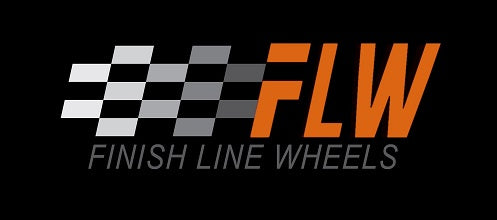
Updated: February 6, 2025
The Unsung Hero of the Road: Understanding Car Wheels (or Rims!)
The journey of a car, truck, or SUV begins and ends with a seemingly simple component: the wheel. These circular metal guardians tirelessly connect your vehicle to the road, enabling smooth starts, controlled stops, and comfortable rides. But navigating the terminology surrounding these crucial components can be surprisingly complex. Are they wheels or rims? What does OEM mean? Fear not, as we delve into the world of car wheels/rims, demystifying the jargon and highlighting their vital role in your vehicle's performance.
Wheel or Rim: A Million-Dollar Question (with a Simple Answer)
The debate rages on: are they wheels or rims? After decades of experience in the automotive industry, particularly in supplying original equipment manufacturer (OEM) wheels, the overwhelming consensus is that, for all practical purposes, they're the same thing.
Technically speaking, some automotive purists, often referred to as "Wheel Nerds," maintain a more nuanced distinction. They define the "rim" as solely the barrel, the specific cylindrical section of the wheel where the tire is mounted. The "wheel," according to this definition, encompasses the entire metal structure, including the spokes, barrel, and the center area, or "hub," which attaches to the vehicle's hub assembly. To further complicate matters, a select few even consider the "wheel" to include the tire itself.
However, for the vast majority of drivers and car enthusiasts, this distinction remains largely academic. The bottom line is this: for 90% of the population, car wheels and car rims are synonymous. We're talking about the complete metal component, usually silver, that sits nestled within your tires, acting as the essential link between the tires and the car's hub assemblies via lug bolts or lug nuts.
So, whether you call them wheels or rims, rest assured that the automotive community, including seasoned OEM Wheel professionals, understands precisely what you're referring to. Don't let the technicalities intimidate you. Focus on the function: these components are the foundation upon which your vehicle's mobility rests.
Decoding the Alphabet Soup: OEM, Factory, Original, and More
Beyond the wheel/rim debate, another area of potential confusion lies in the terminology used to describe the origin and quality of these parts. You'll often encounter terms like "OEM," "factory," "original," "stock," and "replacement." Are they interchangeable? The answer is largely, yes.
OEM stands for Original Equipment Manufacturer. This essentially means that the wheel was manufactured by the same company that produced the original wheels for your vehicle when it rolled off the assembly line. These wheels are designed to meet the exact specifications and standards of the original equipment, ensuring proper fit, performance, and safety.
The terms "factory," "original," and "stock" are generally used to convey the same meaning as OEM. They indicate that the wheel is a direct replacement for the wheel that came with the car from the factory. "Replacement" is a more general term that can refer to both OEM and aftermarket wheels.
Therefore, when searching for a new or replacement wheel, understanding these terms is crucial. Opting for an OEM or factory wheel ensures that you're getting a component that meets the original specifications of your vehicle, potentially minimizing compatibility issues and maintaining optimal performance.
Why Original Equipment Matters: The Benefits of OEM Wheels
While aftermarket wheels offer a wider range of styles and customization options, sticking with OEM wheels provides several distinct advantages:
- Guaranteed Fit and Function: OEM wheels are specifically designed to fit your vehicle's hub assembly, brake calipers, and suspension components. This ensures proper clearance and avoids potential rubbing or interference issues.
- Maintained Performance: OEM wheels are engineered to meet the vehicle manufacturer's specifications for weight, size, and offset. This ensures that the wheels perform optimally with the vehicle's suspension and braking systems, maintaining ride quality and handling.
- Enhanced Safety: OEM wheels undergo rigorous testing to meet safety standards. They are designed to withstand the stresses of everyday driving and provide reliable performance in emergency situations.
- Preserved Vehicle Value: Using OEM wheels can help maintain your vehicle's resale value. Many buyers prefer vehicles that are equipped with original factory parts.
- Aesthetics: OEM wheels preserve the original appearance of your vehicle as it was intended by the manufacturer's designers.
Finding the Right Wheel for Your Ride
Whether you're replacing a damaged wheel, upgrading your style, or simply seeking a spare, finding the right OEM wheel is a crucial step. Here are a few key considerations:
- Wheel Size: Ensure that the wheel size (diameter and width) matches the specifications for your vehicle. This information can typically be found in your owner's manual or on a sticker located on the driver's side doorjamb.
- Bolt Pattern: The bolt pattern refers to the number and spacing of the lug holes that attach the wheel to the hub. Ensure that the bolt pattern matches your vehicle's specifications.
- Offset: The offset is the distance between the wheel's mounting surface and its centerline. Choosing the correct offset is crucial for ensuring proper clearance and avoiding rubbing issues.
- Material: Wheels are typically made from steel or aluminum alloy. Steel wheels are more durable and affordable, while alloy wheels are lighter and offer a wider range of styles.
- Style: Choose a wheel style that complements your vehicle's appearance and reflects your personal taste.
In Conclusion: The Wheel's Enduring Legacy
The car wheel, or rim, is far more than just a circular piece of metal. It's the crucial link between your vehicle and the road, enabling movement, control, and a smooth driving experience. Understanding the terminology surrounding these components, particularly the distinction (or lack thereof) between "wheel" and "rim," and the significance of OEM parts, empowers you to make informed decisions when it comes to maintenance, repair, or upgrades. So, the next time you hit the road, take a moment to appreciate the unsung heroes beneath your tires – the wheels that keep you rolling!
